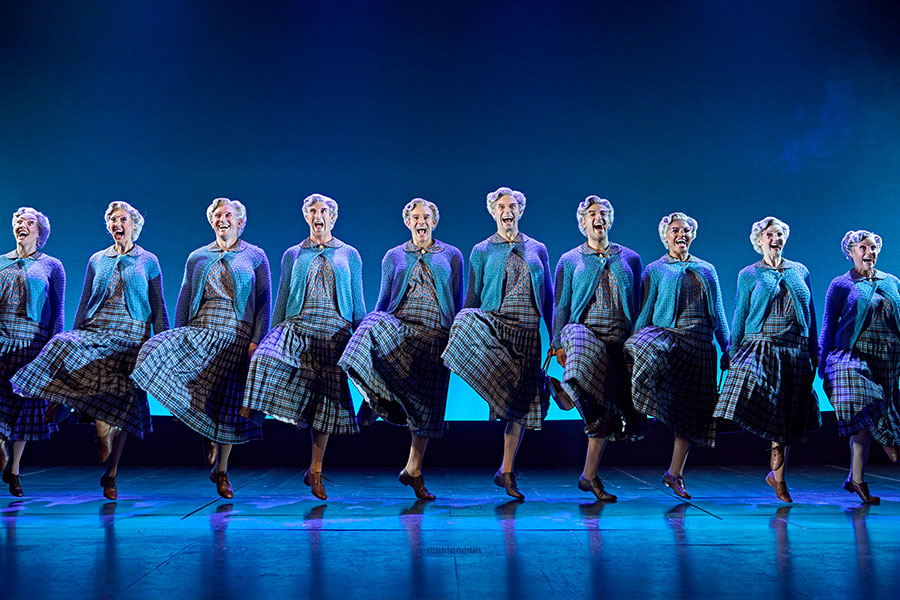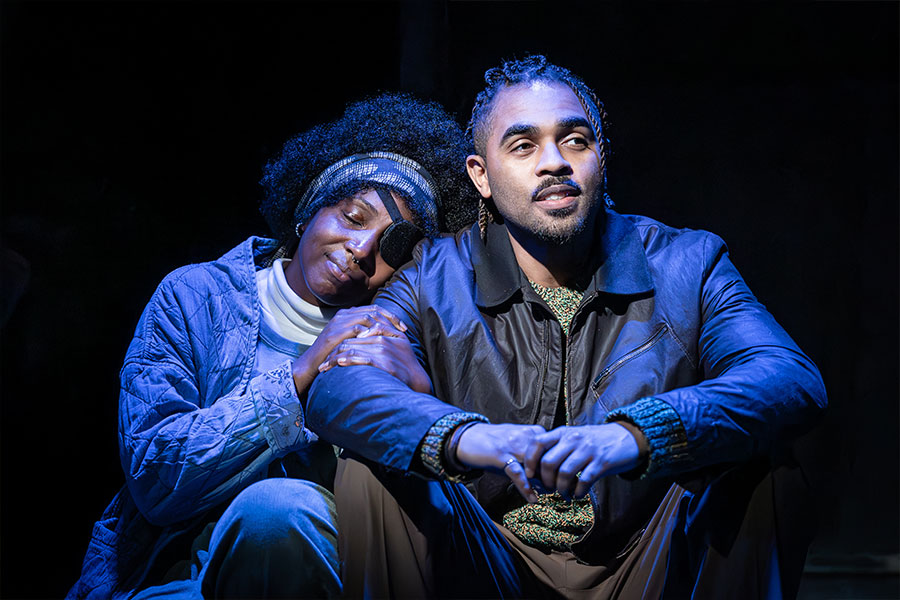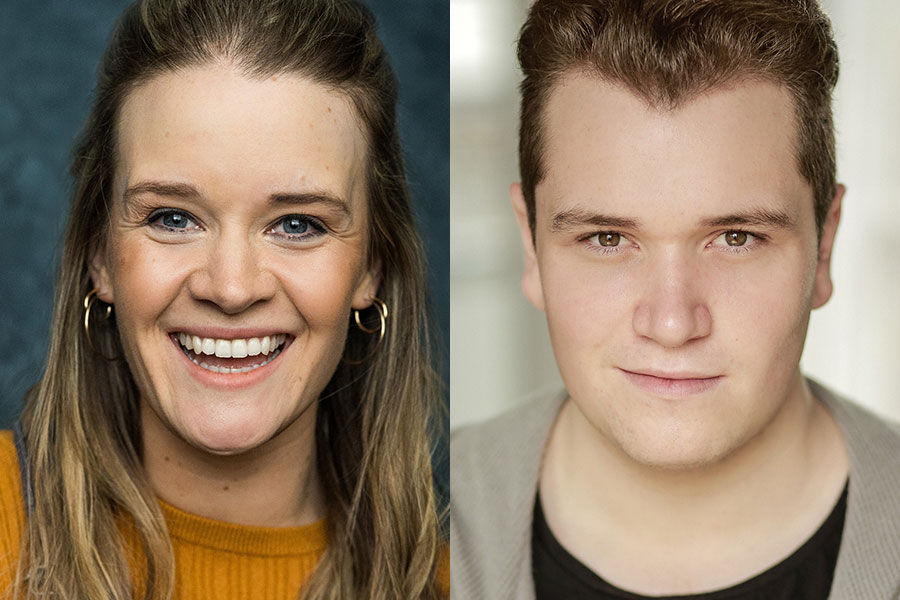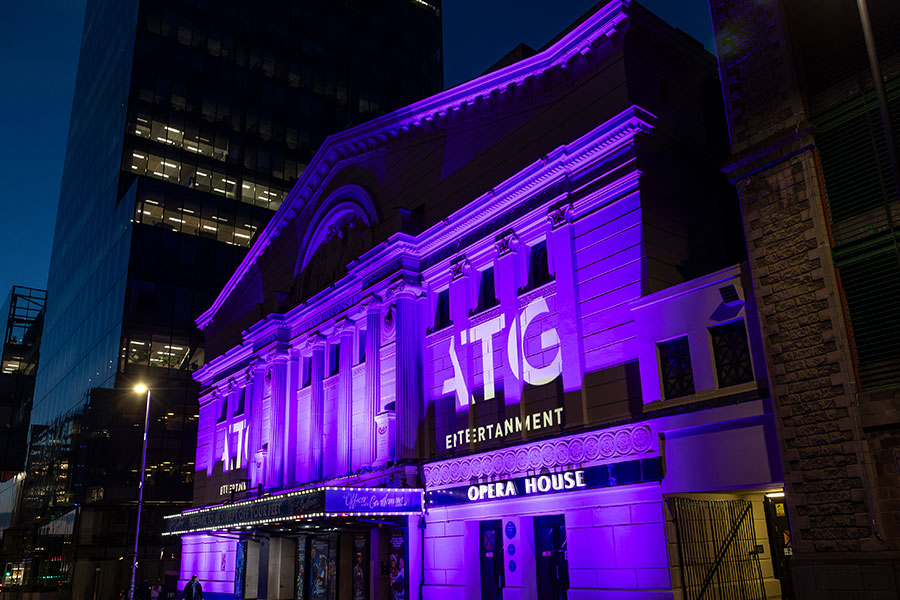Review Round-up: Critics Rally to Rattigan Cause?
Terence Rattigan’s final play, Cause Celebre, has been revived at the Old Vic where it opened last night (29 March 2011, previews from 17 March), where it continues until 11 June.
Directed by Thea Sharrock (whose revival of Rattigan’s After the Dance received great critical acclaim at the NT last year), it stars Niamh Cusack, Nicholas Jones, Freddie Fox, Jenny Galloway and Anne Marie Duff as Alma.
Michael Coveney
Whatsonstage.com
★★
“Thea Sharrock’s Old Vic revival, though not a patch on Neil Bartlett’s beautiful staging at the Lyric, Hammersmith, in 1998, does its best to cover the clunkiness of the courtroom scenes but is not helped by an uncharacteristically featureless design by Hildegard Bechtler that provides a grim upper level for a prison cell … Rattigan’s masterstroke was to counterpoint Alma’s story with that of a fictional reluctant jurywoman, Edith Davenport, who is trapped in a dead marriage and then caught up in a custody battle over her young teenaged son. Anne-Marie Duff and [Niamh Cusack, both slightly, but interestingly, miscast as Alma and Edith, begin stranded on either side of the stage, lonely women, badly treated and sexually unfulfilled … Edith sometimes haunts scenes she isn’t in, and Alma appears in the Old Bailey dock in a night-dress and bare feet. But these ideas aren’t boldly stated enough. After Sharrock’s rapturous rediscovery of Rattigan’s After the Dance last year, this is merely routine.”
Michael Billington
Guardian
★★★★
“Somewhat coolly received at its premiere in 1977, Terence Rattigan’s final play stands the test of time … Occasionally Rattigan’s love of structural neatness is over-insistent. But the play leaves you in no doubt as to what Rattigan views as the real ‘vice Anglais’ … But this is a play about class as well as sex: I had forgotten how subtly Rattigan suggests the opposing counsels inhabit the same masonic clubman’s world while the accused, however innocent of the charge, is branded a corrupter of youth and a vulgar sensualist. Admittedly Anne-Marie Duff is not obvious casting as the happily hedonistic Alma. But she invests the role with a fragile intensity as if she is experiencing a bad dream, and has one wonderful moment when her eyes gaze adoringly at her young son who has been strategically placed in the courtroom. Meanwhile Niamh Cusack as Edith radiates the right conjugal frostiness until her belated conversion. And there is good work from Nicholas Jones as Alma’s silky but patronising counsel and Simon Chandler as Edith’s bereft husband.”
Libby Purves
The Times
★★★★★
“The Old Vic’s crested pomp suits the solemnity of a courtroom; yet that is not the image you carry away from this crowning masterpiece of the Rattigan centenary. Rather, it is the face of Anne-Marie Duff as Alma Rattenbury: a blithe, silken adulteress reduced in her travail to dark, burning eyes and a slash of red mouth … Niamh Cusack, in a crisp 1930s accent, grows in stature and complexity as she loses her son and her prejudices to the awful world of sex … It is a dark set. Despite cell and bedroom scenes on an upper level Thea Sharrock uses, as Rattigan asked, one space, harsh chiaroscuro lighting directing the eye to trial or flashback … We laugh at the lawyers, at Stella, and when Tony’s friend scorns a fifteen-shilling Paddington whore with ‘You are speaking to the son of a bishop. When I do it, it’ll be Jermyn Street and a fiver’. The laughing doesn’t devalue the weeping.”
Charles Spencer
Daily Telegraph
★★★★
“The centenary celebrations for English playwright Terence Rattigan continue to bring rich rewards. Hard on the heels of Trevor Nunn’s superb production of Rattigan’s Second World War drama Flare Path at the Haymarket comes this terrific revival by Thea Sharrock of his last play, Cause Célèbre … Like Flare Path, Cause Célèbre isn’t usually regarded as being in the same league as such acknowledged Rattigan masterpieces as The Browning Version and The Deep Blue Sea – but in Sharrock’s loving and beautifully acted revival it mixes anguish, suspense, humour and compassion to often electrifying effect … Rattigan achieves some spectacular successes in this play. With great skill he makes us care about and even admire a woman whom we are initially invited to view as a manipulative minx and cradle-snatcher … Thea Sharrock’s production isn’t quite as pitch perfect as her revival of Rattigan’s After the Dance at the National last year … Anne-Marie Duff is electrifying as Rattenbury, capturing all the complexity of a woman driven by love and lust, at times repellent in her manipulation and vulgarity, at others deeply moving in her flayed emotions and what we come to recognise as a truly noble generosity of spirit. Niamh Cusack is equally moving as the jury foreman, whose suffocating love for her son — excellent Freddie Fox — seems almost as dangerous as Rattenbury’s passion for her toy boy, played by Tommy McDonnell with a persuasive mixture of the vulnerable and the cocksure.”
Henry Hitchings
Evening Standard
★★★
“The play draws inspiration from a scandalous trial of the Thirties, and provides Anne-Marie Duff with a vividly tragic role … The crime is never in doubt – we hear about it in the play’s opening line – but there is uncertainty over who should bear responsibility for it … Alma is at first a blend of flirtatiousness and patrician poise, yet grows desperate and muted. Equally intriguing is Edith Davenport (a suitably brittle Niamh Cusack) … Rattigan uses the two women’s contrasting philosophies, as well as the morbid escapism of Edith’s son Tony (Freddie Fox), to portray a variety of stifling and very English attitudes to passion and morality … Too many of the characters – notably George (Tommy McDonnell) – feel like sketches instead of rounded creations … Lucy Robinson impresses as Edith’s shallow sister Stella, and Nicholas Jones is gloriously dry as Alma’s barrister. Yet the production lacks real piquancy. Sharrock directs clinically, and there’s not enough sense of urgency and ardour. Matters aren’t helped by a design that proves technically ingenious but rather ugly… the action seems remote. A powerful finale and the quality of Duff and Cusack can’t obscure the fact that this is not Rattigan at his most eloquently anguished.”
Quentin Letts
Daily Mail
★★★
“Terence Rattigan’s Cause Celebre is an intriguing drama. It receives a decent rendition here but falls just short of total success. The main failing is a reluctance by director Thea Sharrock to trust the play. Instead she teases its old-fashioned, 1930s mannerisms and allows some of the performances to drift into caricature … Cusack is one of the main culprits of over-acting. Her clipped accent is de trop, like something from a Harry Enfield skit … Director Sharrock and her designer Hildegard Bechtler have gone for big impact and use an attic space which lowers from the ceiling. This is used for a bedroom and for a prison interview room. The device is awkward, however. Those of us in the stalls had a poor view and had to crane our necks … Much of the second half is devoted to the courtroom scene. This is easily the best material, Nicholas Jones giving a languid performance as Alma’s barrister. The lawerly jousting is delicious. Jones nearly steals the show. But Duff is very good, her ‘licentious’ Alma being torn by competing loyalties and loves. Rattigan seems to be warning us against too stern a view of those caught by animal lusts in a difficult marriage. Wry humanity is better than overdone disgust. I suppose some of the 1930s attitudes have dated but not so much that we cannot understand the dilemmas faced by the two main female characters. Frustrated wives and lawyers will have plenty here to relish. Cuckolded older men may want to give it a miss, though.”










